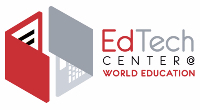The
eight semi-finalist apps will now be field tested for 15 months in Philadelphia, Dallas and Los Angeles by 12,000 adult participants who read English at a third-grade reading level or below. We at the EdTech Center will be following the field testing to report on leanings on the effectiveness of different instructional strategies used in the apps with different demographics (ELL, ABE, etc.).
Approaches vary from teaching through song lyrics (
Lyrica), interactive audio and texting messages (
Cell-Ed), gaming (
People ForWords,
AutoCognita and
Learning Games Studios), videos and other multi-media content (
Learning Upgrade and
Alphabet), and culturally appopriate e-content linked to life skills (
AmritaCREATE). Some of the apps deploy a combination of strategies.
For more information on the competition, see the XPrize competition's
announcement. Of note is that apps that perform best in field testing will be made available across the United States for complimentary use for 18 months.
Photo by Trevor Traynor. Courtesy of XPrize Foundation.


